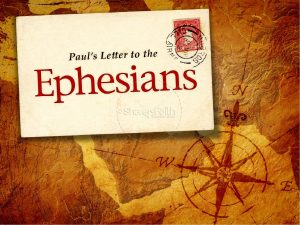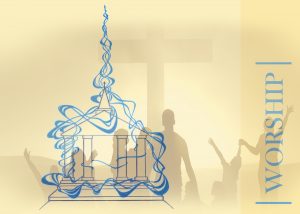
Ephesians 1:19-23
We live in tumultuous times. But we can take comfort, in trusting that our loving heavenly Father holds each of us in the palm of His hand.
As Followers of Jesus, we are not encouraged not to be fearful or anxious, we are commanded to not be afraid. In Matthew 6:25 Jesus is not suggesting that try not to worry, he is emphatically stating it.
But how do we avoid being anxious in a 24/7 news cycle of constant coverage of a pandemic that is threatening everything that we have become accustomed to.
Therein lies the problem, we are so accustomed to our lives being predictable and seeming to be under control. We trust the healthcare systems and the government, both of which will ultimately fail us.
Jesus at the end of Matthew 6 gives the antidote to fear and anxiety, “But seek first the kingdom of God and his righteousness, and all these things will be added to you.” Matthew 6:33
In this season of uncertainty, are we going to lean into God and meditate on the truths of His Word, or are we going to look to man for the answers that only God can give?
As true followers of Jesus, we belong to Him and are in His care. Therefore, we can remain at perfect peace in any circumstance (see Isaiah 26:3–4).
I believe that this is a wonderful opportunity for the church to
proclaim the Good News, to serve our neighbors and our community, not giving in
to fear, but boldly walking in the fact that we know our trust is in the one
who created the universe, who still holds
all things together.
We have always said that the church is not the building; now we get to display that truth.
Today I want to continue to move through Ephesians 1, and only God could have set this up, because these next few verses are exactly what we need to hear today in our season of uncertainty.
Looking at Ephesians 1:19-23
In verse 19, Paul continues to pray for revelation that the eyes of their hearts would be opened, that they would understand, “what is the immeasurable greatness of his power toward us who believe, according to the working of his great might”.
God is all-powerful, He is not simply more powerful, He is the source and the sum of all power. There is nothing in all creation that does not derive its power from God in the first place. And here is the incredible news, His power is for us and is given to all who believe in Jesus Christ as Lord.
The power of God is available to us to overcome temptation, fear, anxiety and the plans of Satan. This is even more relevant in March 2020, where we are suddenly faced with uncertainty and the realization of our inability to control our own destiny.
We have an overinflated opinion of our own strength, and a low view of God.
We don’t fully grasp the fact that Satan hates followers of Jesus, and his plan is to destroy us and our families.
We as Christians, need to lean into Christ, rely on the power of God. This immeasurable power that is for us and more than that, it is in us through the Holy Spirit. We must pray for His resurrection power to strengthen us and empower us to live victoriously for Him in our day to day lives. How relevant this is for us today!
In verse 20, Paul writes that this immeasurable power is the power that God raised Jesus from the dead is living in us and for us (see Romans 8:11).
The challenge we face in the church today is that we have a power problem. Too many people are trying to live the Christian life without leaning into the power of the Holy Spirit.
Do you know the power of God in your life?
Starting today, you can know by experience the power of God that is for you and in you as a follower of Jesus.
JB Philipps wrote a short book called, “Your God is too small”, in it he challenges us to look beyond the religious god that we have created and are able to quantify and understand. The reason we lack faith, is because our god is too small. This is also why we struggle with passages in the Bible, because we reason with limited minds and think that God is in some way limited to our understanding of Him.
The Apostle Paul then goes on a powerful flowing explanation of who Christ is now in his resurrected form (Ephesians 1:20-23). Wow! That is our savior and Lord who is in all and overall.
God raised Jesus from the dead, a miracle that we will celebrate in a few weeks at Easter, but more than that, Jesus is seated at the right hand of God the Father, a position of power and might above everything that has ever been created. Not only is every power inferior to Jesus, they are also subject to him. And when he comes again to take his bride, the church, to be with him, Jesus will simply speak and all of creation will melt at his voice (see Psalm 46).
In these challenging times, we must remember that God is for us. The church is not simply a gathering at a place and time, rather the church is the true followers of Jesus. Jesus has promised to build his church and the gates of hell will not prevail against it (Matt 16:18).
So, we as the church are faced with a challenge, how do we function? I believe that problems are opportunities wrapped in a challenge.
For the next few weeks we will not meet as a large group, but my prayer is that we will meet in small groups or via video. We will encourage, care and pray for one another, meeting one another’s needs like the first century church did.
I believe we will emerge from this as a stronger church with stronger ties of fellowship and community. More than that, our community needs us to be the church. Reaching out in love and care, with the deep knowledge that God has promised that His immeasurable power is still for those who love Him.






